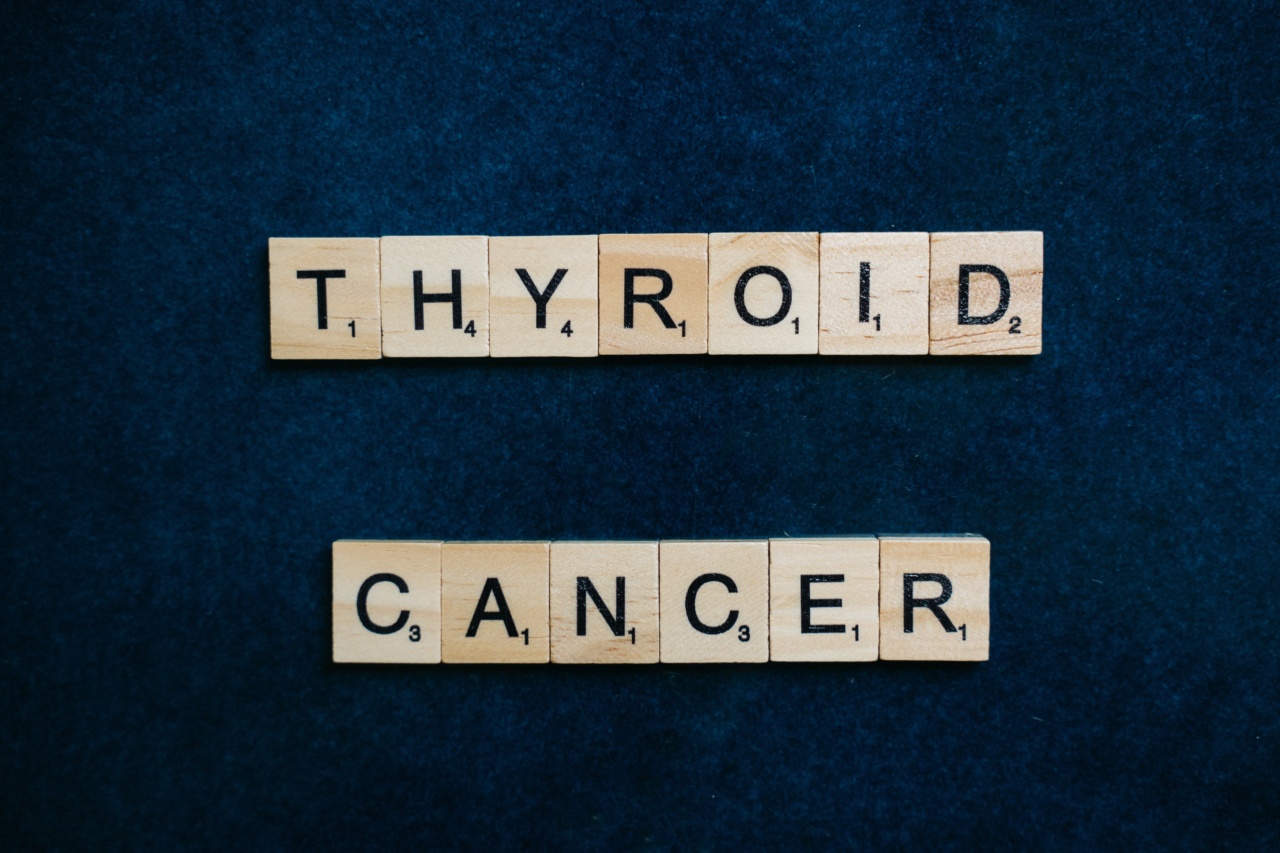Thyroid nodules are common thyroid gland abnormalities that can be benign or malignant. This comprehensive guide aims to provide a thorough understanding of thyroid nodules and their association with thyroid cancer.
What are Thyroid Nodules?
Thyroid nodules are abnormal growths or lumps that form within the thyroid gland. They can vary in size and may be solid or filled with fluid. Thyroid nodules are quite common, and most of them are benign, non-cancerous.
Symptoms and Causes of Thyroid Nodules
In most cases, thyroid nodules do not cause any symptoms and are incidentally discovered during a routine examination. However, larger nodules or those that produce excessive thyroid hormones may lead to symptoms such as:.
- Swelling or a lump in the neck
- Difficulty swallowing or breathing
- Hoarseness
- Neck pain
The exact cause of thyroid nodules is yet to be determined. However, certain factors increase the risk of developing them:.
- Iodine deficiency
- Family history of thyroid nodules or cancer
- Being female
- Age over 40
Categorization and Evaluation of Thyroid Nodules
Thyroid nodules are classified into different categories based on their characteristics. This categorization helps determine the likelihood of cancer and guides the appropriate course of action. The categories include:.
- Benign (non-cancerous) nodules
- Indeterminate nodules
- Suspicious nodules
- Malignant (cancerous) nodules
When a thyroid nodule is discovered, further evaluation is necessary. This typically involves:.
- Thyroid function tests to evaluate hormone levels
- Ultrasound imaging to assess the nodule’s characteristics
- Fine-needle aspiration biopsy to collect tissue samples for analysis
Thyroid Cancer: An Overview
Thyroid cancer occurs when abnormal cells within the thyroid gland grow and multiply uncontrollably. The most common types of thyroid cancer include:.
- Papillary thyroid cancer
- Follicular thyroid cancer
- Medullary thyroid cancer
- Anaplastic thyroid cancer
Thyroid cancer is often associated with a good prognosis, especially when detected early and treated promptly.
Treatment Options for Thyroid Cancer
The treatment approach for thyroid cancer depends on various factors such as the type and stage of cancer, as well as the individual’s overall health. Common treatment options include:.
- Surgery to remove part or all of the thyroid gland
- Radioactive iodine therapy to destroy any remaining cancer cells
- Hormone replacement therapy to replace the thyroid hormone
- External radiation therapy in certain cases
Long-Term Outlook and Follow-Up
Following thyroid cancer treatment, regular follow-up appointments are crucial to monitor the patient’s progress and detect any recurrence or complications.
Thyroid hormone levels will also be monitored, and additional imaging or blood tests may be conducted when necessary.
With appropriate treatment and surveillance, the long-term outlook for thyroid cancer patients is generally positive.
Prevention and Lifestyle Measures
Although it may not be possible to prevent all cases of thyroid nodules or cancer, certain measures may help reduce the risk or aid in early detection:.
- Ensuring adequate iodine intake through diet or supplements
- Regular self-examination of the neck area
- Seeking prompt medical attention for any persistent symptoms or concerning changes
Conclusion
Thyroid nodules are common, and most of them are benign. However, prompt evaluation is essential to rule out cancerous nodules. Understanding the symptoms, risk factors, and appropriate evaluation methods is crucial for early detection and treatment.
If diagnosed with thyroid cancer, appropriate treatment options are available, and regular follow-up is vital for long-term management and surveillance.





























